Howling with wolves
The enigma of being human is richer and more poignant when we share it with other life forms in our great family, which is why Baptiste Morizot goes out at night to converse with a pack of wolves
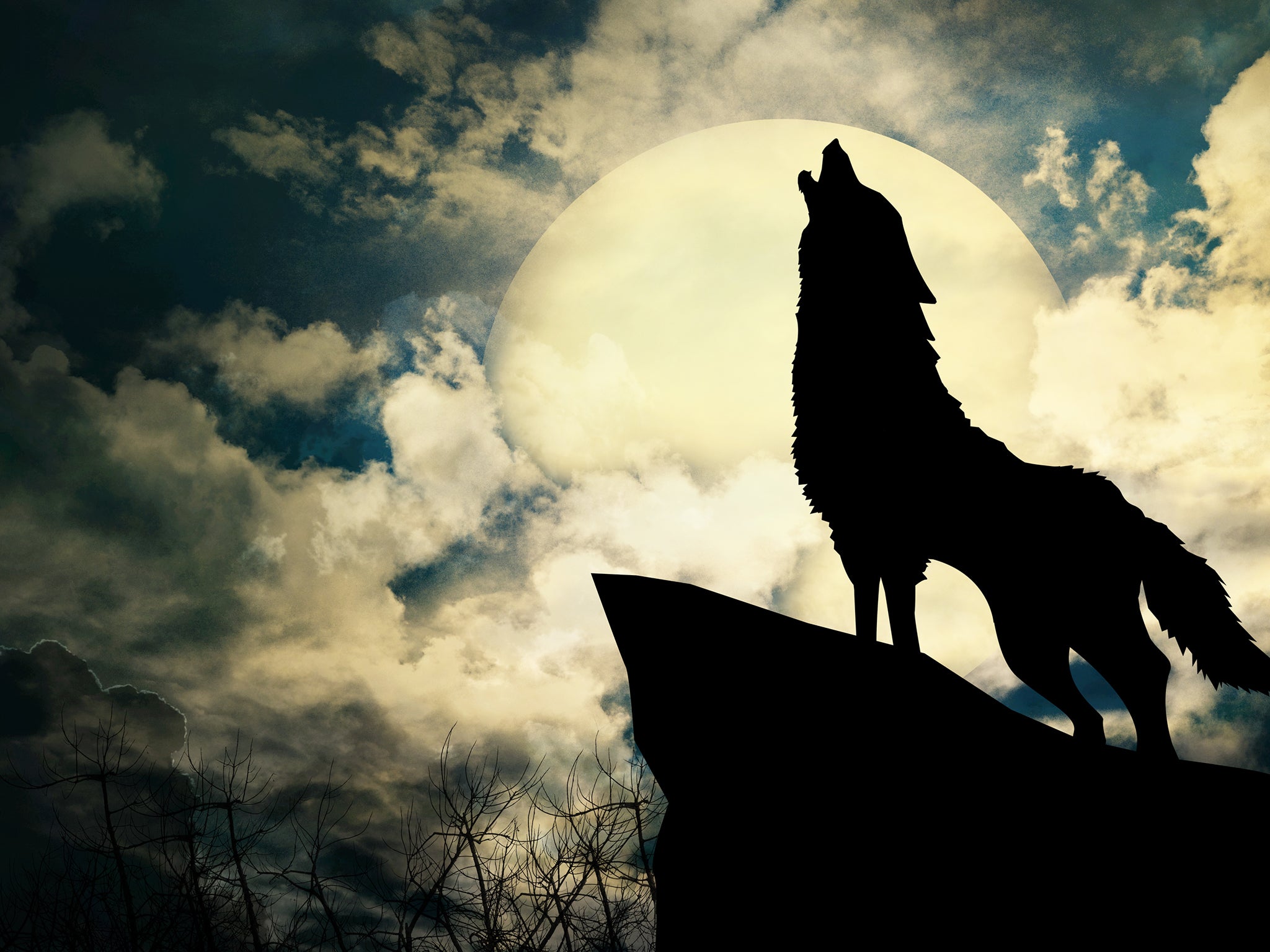
It’s the first day of winter. We set out quite late in the sunshine, feeling as heavy as at the beginning of the season, not yet sharpened by the snow, not yet woven by the white winds. The reason we’re here in the South Vercors is that we’ve had some information, heard rumours: certain clues seem to indicate that wolves have settled here, and that they may have reproduced. Has a new pack been born, inventing its territory along these familiar paths?
We advance awkwardly along a small trail of snow piled up at the side by the passage of snowshoes, heading north. A fat moon creates sharp outlines, clouds and horizons as clear as a print, as if a Japanese painter were refining the line of trees behind us with a calligraphy brush as soon as we turn our backs.
And this is when it pierces the night. A perfect wolf howl, right next to us. We stand still as if struck by lightning, each pulls off his companion’s cap, we grab each other by the shoulders. Then, a wide-open silence, like when you wait for the response at Mass. So I answer. I howl the way I’ve learned to, to match the attitude, the shape, the particular curl of their native tongue. I mime it as best I can, like a mediaeval traveller on his way to the Levant who has learned to pronounce by heart a phrase of diplomatic greeting in the language of the mythical people of the Cynocephali, those wild humans with dogs’ heads reputed to inhabit the great steppes north of Lake Baikal, as told in Marco Polo’s Book of The Marvels of the World. But without understanding a single word of it.
Silence again, an almost loving silence, waiting for an answer to our attention. And he sings. A magnificent cry, very monotonous, almost too perfect. So I answer: one has to stay courteous, but how are we to escape this charade? Again he sings out, carefully modulating, louder this time, very close, just behind a ridge 30 metres from us. Then a second wolf replies, further to the south: a deeper, more solid howl, lower too, and we reply together, the hidden wolf and myself. A third wolf responds, over there to the southeast. But not very far away, a few hundred metres at most. The dialogue continues over a few more exchanges, he continues to reply with good grace.
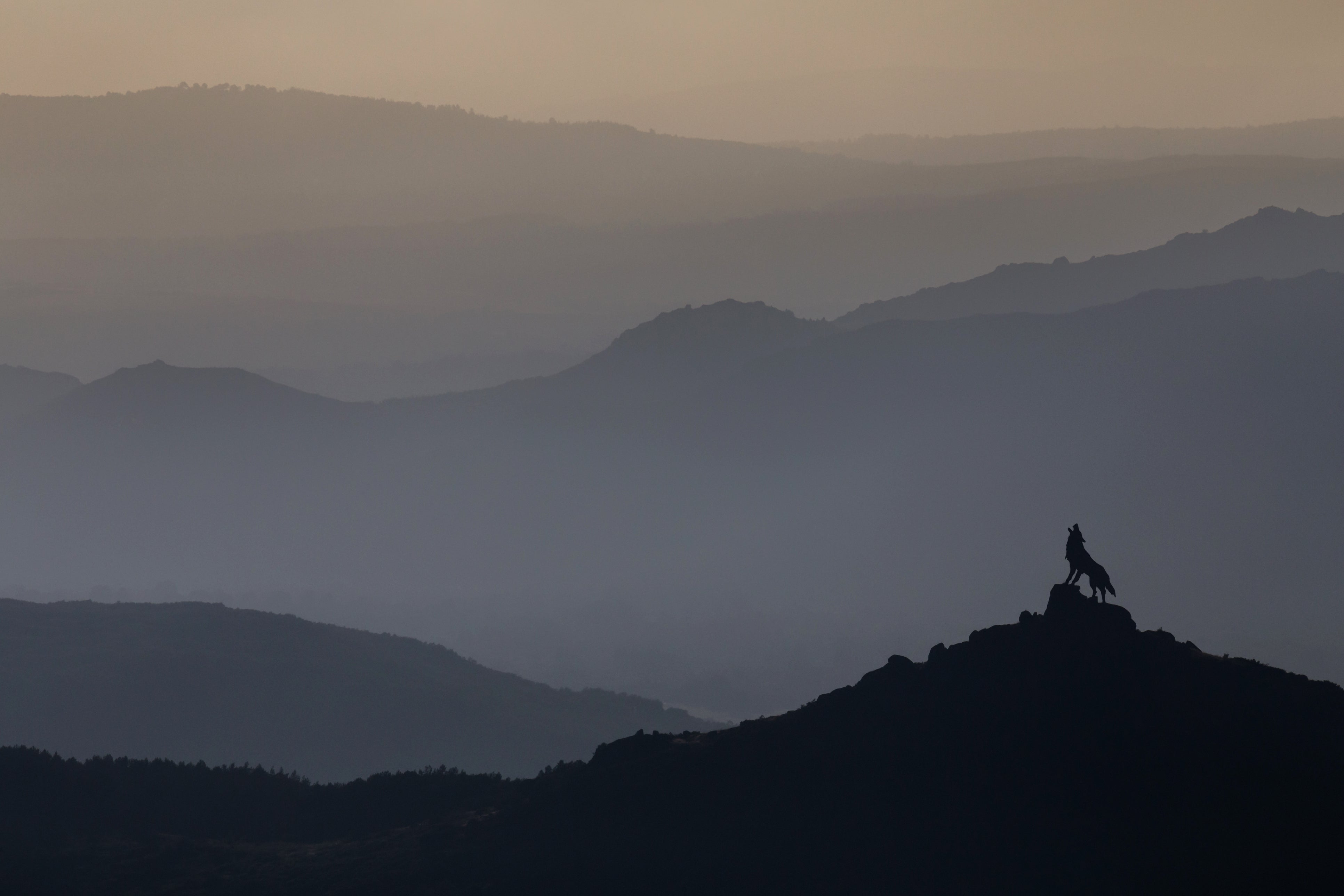
So I make a hush sign with my finger to my lips; let’s try and arouse his curiosity. Often wolves come to see who’s been howling, even if they know or suspect that it’s not a fellow wolf. In the silence, hands clinging to each other’s shoulders, we wait, scrutinising with all the warmth of our eyes the ridge where he is bound to emerge. He howls again, pleadingly, and I bite my lip to stop myself replying. There is something solid about our waiting, the ridge pulsates, a single spruce tree inhabits it, and we can’t see the profile of a single figure.
I then remember the first time I saw a wolf, it was a black wolf on a crest, it was his profile against the blue air that made him stand out, while his colour in the dusk made him merge with the sage bushes of Lamar Valley in Montana. But here we’re two hours by car from Lyon, on the Vercors plateau, a familiar mountainside where you don’t expect mythological encounters.
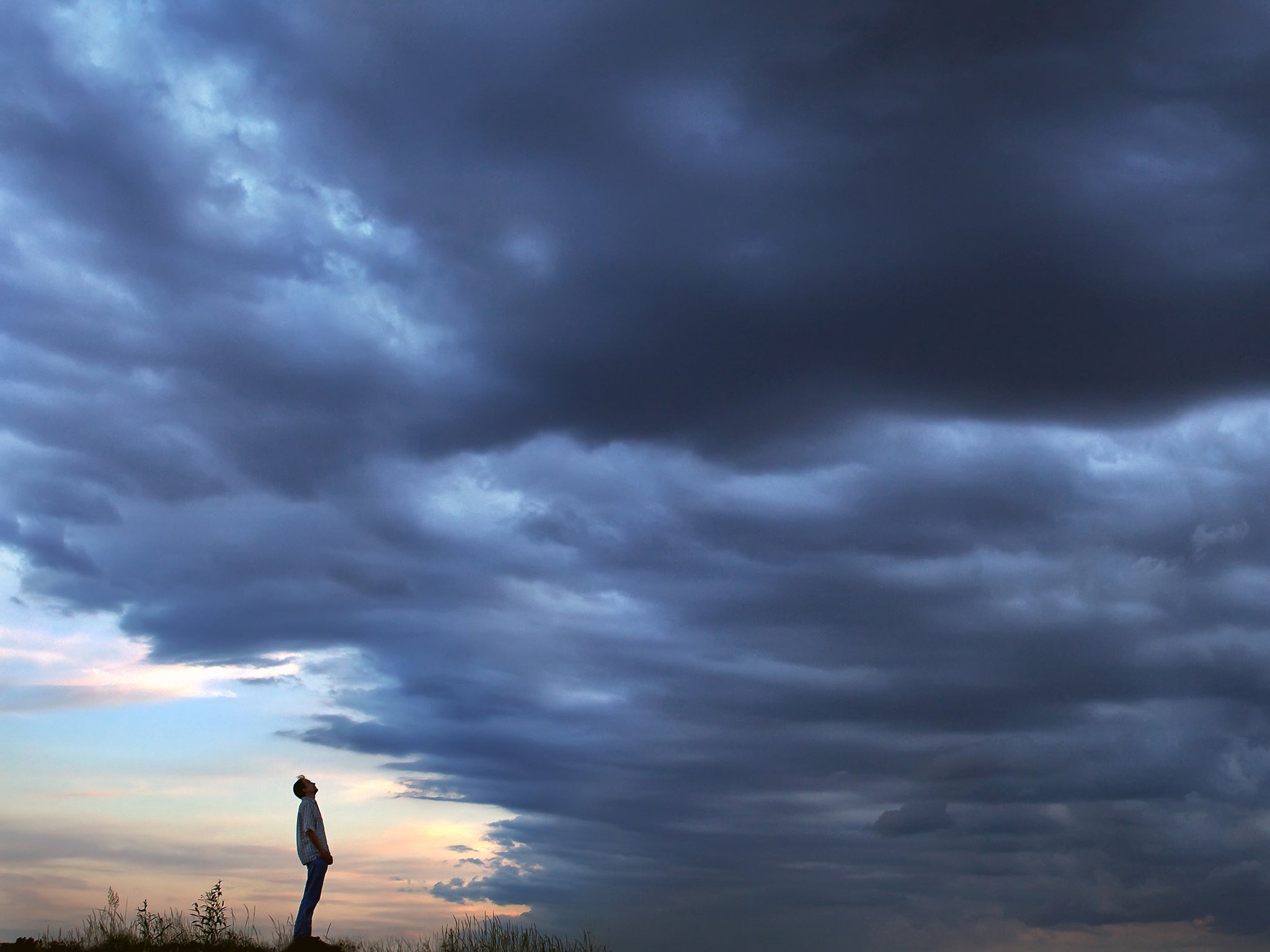
We run back to the cabin, the other travellers have come out on to the threshold. They’ve heard. I call out into the wind, a long, modulated, almost languid cry. And there, in front of us, a hundred metres away, in the dark, a whole polyphony answers: together, all this year’s cubs, the whole litter that was born at the end of spring. They sing in curlicues, excited, anxious, high-pitched, joyful, uncontrolled, without the perfect economy of adult singing, yapping, trilling, yelping, and all in rhythm. The echo confirms their number (and at the same time we smile at the disproportion: actually, the scientific dimension of this kind of experience is not its ultimate purpose, it often serves as a canvas for encounters of another type, another magnitude).
But does the wolf actually know you’re human? Do they think you’re a wolf? Do they think you’re one of the pack? Why do they answer if they know you’re human?
Once again I answer, we are all as silent as if we were hunting or in a temple, and the pack retorts again. This time it’s the cubs and a few adults, impossible to count. Then we all howl in chorus; no answer. Again, we sometimes hear the distant howl of an adult probably looking for the group, but the latter now falls silent. The wind turns and makes it difficult to determine the origin of the distant songs that sometimes reach us. The wolves gathered in front of us are no longer answering.
The human beings, on the other hand, are in a state of silent exaltation: the howls gently took everyone outside of themselves, in an ancient wonder of bewilderment and gratitude. Standing by the stove, the mountain experts, who had previously been discussing the shape of snowflakes or the merits of their skis, stammer like children and, by a strange alchemy that I still don’t understand, people thank each other, as if we’d all given each other something, and then they laugh as they realise that none of us is the author of the gift.
In this shared emotion, there is something like reverent respect, curiosity and excitement. Welsh philosopher Martyn Evans defines “wonder” as an “altered, overwhelmingly heightened attention to something that we immediately recognise as important – something the emergence of which engages our imaginations before our understanding, but which we will probably want to understand more fully over time”. When we hear the song, we feel that we belong to this story, to this destiny shared by the living on Earth.
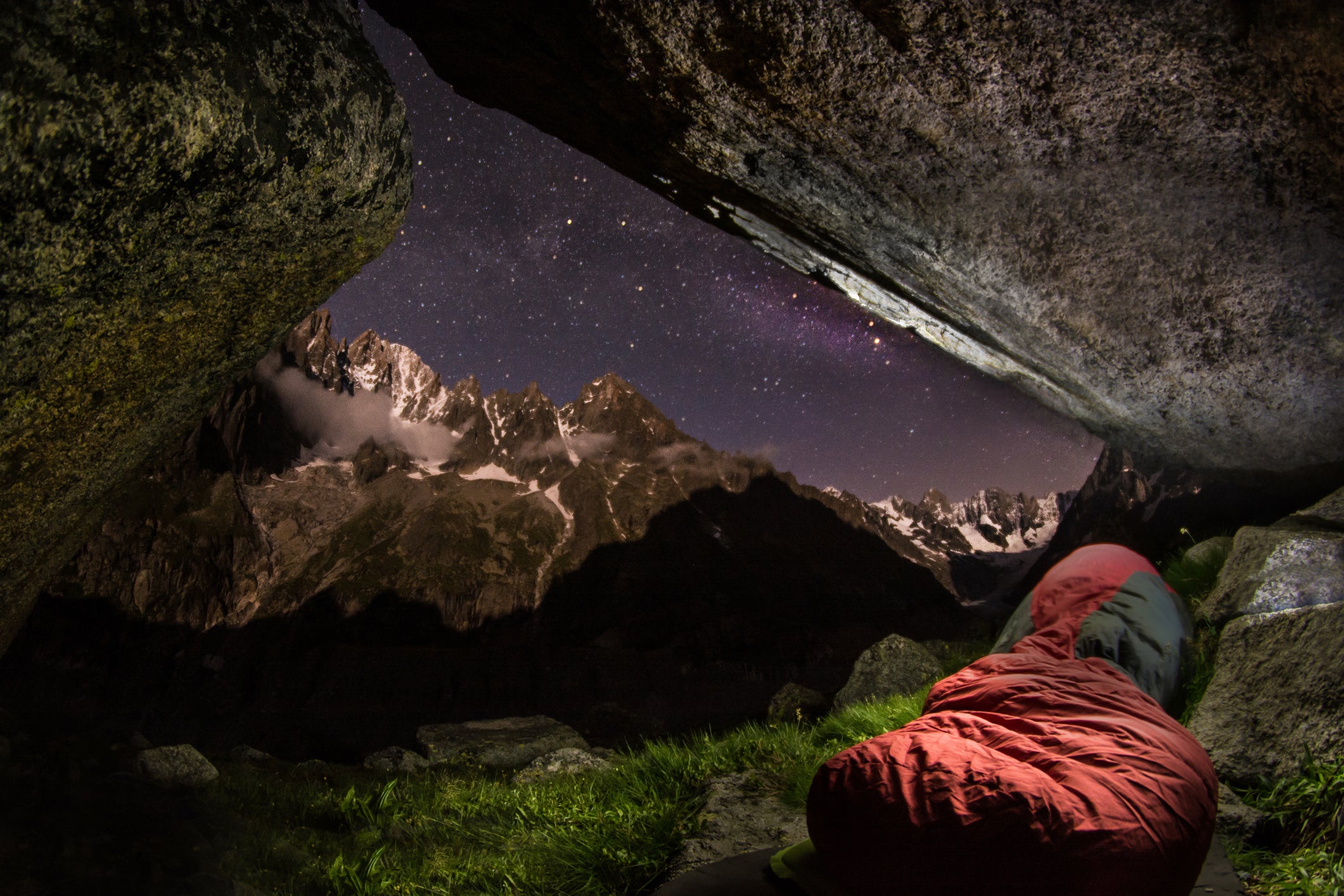
We’re under the stars, the slush soaking through our down jackets, but no one seems to notice. After the dialogue with the wolves, the mountain people ask me, in every shape and tone of voice, irritated by the poverty of my answers: “But does the wolf know you’re human? Do they think you’re a wolf? Do they think you’re one of the pack? Why do they answer if they know you’re human? Why are they howling anyway?”
Admittedly, while howling as best I can for that wolf behind the crest, trying my hand at his art, I know I don’t know what he’s thinking. Does he know that I’m a human? At one point he knows it since he falls silent, but did he hear it, or did he see it when he came to meet me? (The next day, we read from his tracks that he came to spy on us, taking a detour around the ridge.) He listens to me and then responds. There’s a hint of bewilderment in his answers. He finally falls silent. Because he has his doubts.
We go to bed, feeling as light as only that resonance makes you feel light: the feeling that we can have dialogue with the world, that despite its strangeness, it hears us, it answers us; that we can, in the space of a few exchanges, tear up the modern myth of the silence of the universe.
Leaving the city, then, does not mean moving away from noise and nuisance into a pastoral idyll; it isn’t a matter of going to live in the countryside, it’s about going to live in a minority
In fact, if we do the diplomatic work of translation, of intercession, if we move through this border zone where specific shapes become blurry, it’s possible to come into contact with all those alien kin. What we can feel, perceive, and understand of living beings has been impoverished, along with the relations we can weave with them – a reduction in the range of affects, precepts, concepts and practices connecting us to them. We have a multitude of words to describe relationships between humans, between collectives and between institutions, with technical objects or with works of art, but far fewer words for our relations to living beings.
This impoverishment of the scope of our sensibility towards living beings, of the forms of attention and of the qualities of openness towards them, is both an effect and one of the causes of the ecological crisis we face. But as an enigma among other enigmas, the human way of being alive only makes sense if it is woven into the countless other ways of being alive that the animals, plants, bacteria and ecosystems all around us demand.
The ecological crisis we are going through is a crisis for human societies: it endangers future generations, the very bases of our subsistence, and the quality of our existence in polluted environments. It’s crisis too for living beings: the extinction of species, the destruction of wildlife, and the weakening of ecological dynamics as well as of the evolutionary potential of the biosphere, due to climate change. But it is also a crisis for something else, more discreet, and perhaps more fundamental – a crisis in our relations with living beings.
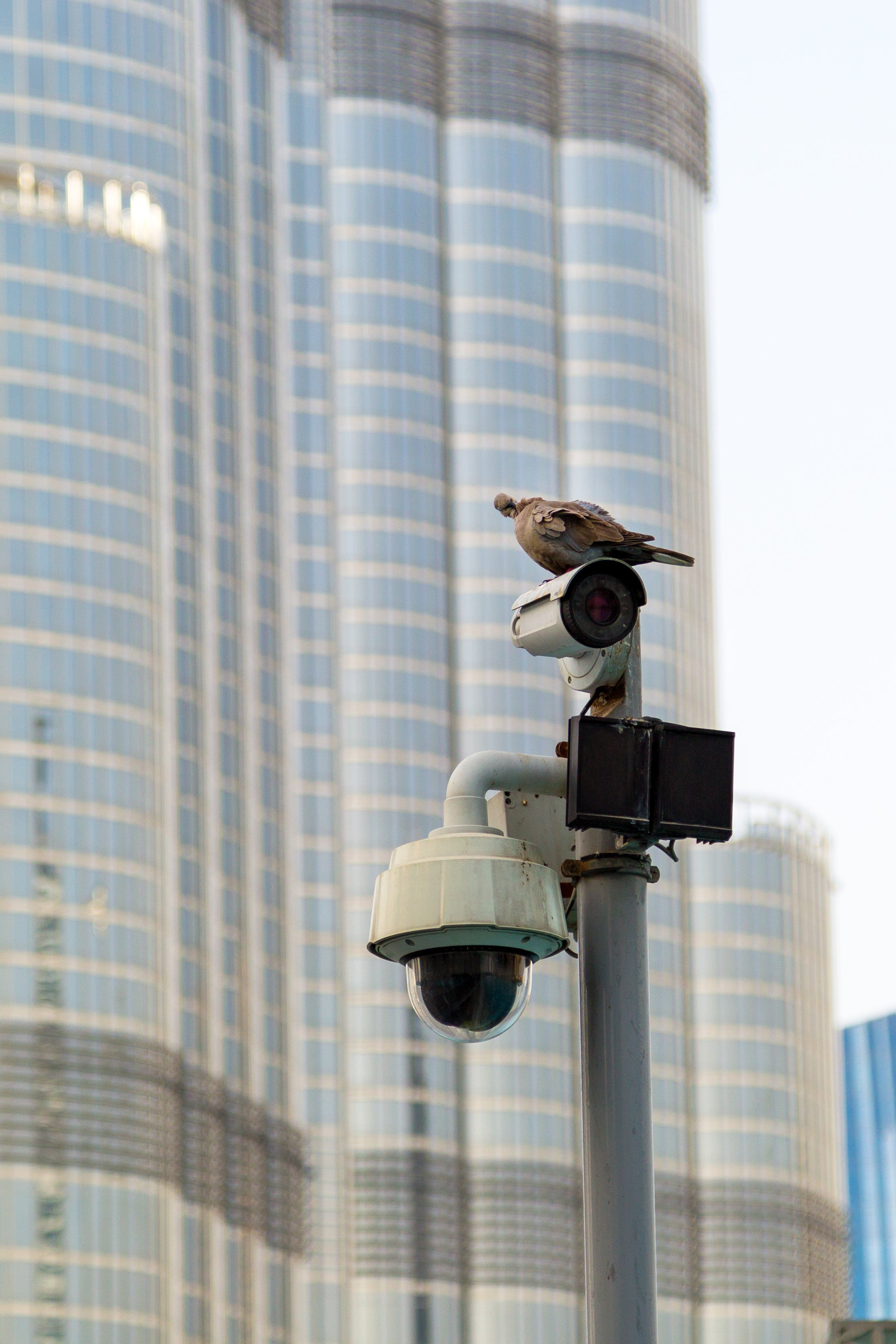
There are crows everywhere in our cities, their calls reach our ears every day, and yet we hear nothing, because they have been turned into beasts in our imaginations: into “nature”. There is something sad about the fact that the 10 different bird songs that we hear every day do not reach our brains other than as white noise, or at best evoke a bird’s name, empty of meaning – it’s like those ancient languages that no one speaks any more, and whose treasures are invisible.
But, for whoever seeks to translate them, to release them from being just white noise, they comprise myriads of geopolitical messages, territorial negotiations, serenades of intimidation, games, collective pleasures, challenges laid down, wordless negotiations. The smallest flowery meadow is a caravanserai – cosmopolitan, multilingual, multispecies, and buzzing with activity. It’s a spaceship on the edge of the universe, where hundreds of different life forms meet and establish a modus vivendi, communicating through sound.
On spring nights, we hear the laser songs of nightingales echoing through this spaceship, fighting without violence, competing in beauty to attract their female companions who have followed them in their migration and wander at night through the woods in search of their males; we are surprised by the barking of the deer, the guttural rumbling of intergalactic beasts, howling the despair of desire.
What we call the countryside on a summer evening is the noisiest, most colourful souk, populated by many species, stirring with industrious energy; it’s a non-human Times Square on a Monday morning – and the moderns are crazy enough, their metaphysics is complacent enough, to see in it a resourceful silence, a cosmic solitude, a peaceful space. A place empty of real presences, and silent.
Leaving the city, then, does not mean moving away from noise and nuisance into a pastoral idyll; it isn’t a matter of going to live in the countryside, it’s about going to live in a minority. As soon as nature is denaturalised – no longer a continuous flat area, a one-room stage setting, a background against which human tribulations are played out – and as soon as living beings are translated back into beings and no longer seen as things, then the cosmopolitanism of many species becomes overwhelming, almost unbreathable, overwhelming for the mind: human beings have become a minority. This is healthy for the moderns, who have adopted the bad habit of transforming all their “others” into minorities.
The whole philosophical issue ultimately lies in making it clear and obvious that there is indeed something to see, and rich meanings to translate, in the living environments that surround us. But we need merely take this one step further for the whole landscape to be recomposed – that’s why howling with a pack of wolves in the snows of the Vercors sits somewhere between an ethological thriller and an account of a first contact with alien life forms. The ever-intact enigma of being a human is richer and more poignant when we share it with other life forms in our great family, when we pay attention to them, when we do justice to their otherness. This interplay of kinship and otherness with other living beings, the common causes they foster in the politics of life, are part of what makes the “mystery of living”, of being a human being, so inexhaustible.
This is an extract from ‘Ways of Being Alive’ by Baptiste Morizot, Polity Books
Join our commenting forum
Join thought-provoking conversations, follow other Independent readers and see their replies
Comments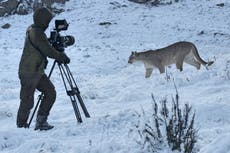



Bookmark popover
Removed from bookmarks